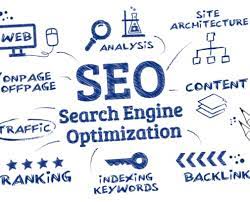
Search Engine Optimization (SEO) is a crucial aspect of digital marketing that helps websites rank higher in search engine results pages. By understanding the basics of SEO, you can improve your website’s visibility and attract more organic traffic. Here are some key concepts to help you grasp the fundamentals of SEO:
Keywords are the terms and phrases that users type into search engines to find relevant information. Conduct keyword research to identify high-volume and relevant keywords for your content.
On-page optimization involves optimizing individual web pages to rank higher and earn more relevant traffic. This includes optimizing meta tags, headings, content, and images.
Off-page optimization refers to activities outside your website that impact your site’s rankings. This includes building backlinks from reputable websites and engaging in social media marketing.
Creating high-quality, engaging content is essential for SEO success. Search engines prioritize content that is valuable, relevant, and authoritative.
User experience plays a significant role in SEO rankings. Ensure your website is mobile-friendly, easy to navigate, and loads quickly to provide a positive user experience.
Monitor your website’s performance using tools like Google Analytics. Analyzing data such as traffic sources, bounce rates, and conversion rates can help you make informed decisions to improve your SEO strategy.
By mastering these fundamental concepts of SEO, you can enhance your website’s visibility, drive more organic traffic, and ultimately grow your online presence.
Researching and incorporating relevant keywords into your content is a crucial tip for understanding SEO. By identifying high-volume and industry-specific keywords, you can optimize your content to align with what users are searching for online. This strategic use of keywords not only helps search engines understand the relevance of your content but also increases the likelihood of your website ranking higher in search results, driving more organic traffic to your site.
To improve your website’s search engine visibility, it is essential to optimize your meta tags, such as title tags and meta descriptions. Title tags are the clickable headlines that appear in search engine results, while meta descriptions provide a brief summary of the page’s content. By crafting compelling and relevant meta tags with targeted keywords, you can enhance your website’s click-through rate and attract more organic traffic. Optimizing these elements not only helps search engines understand the context of your pages but also entices users to click on your website, ultimately improving your SEO performance.
Creating high-quality, engaging content that provides value to users is a cornerstone of effective SEO strategy. By offering informative, relevant, and compelling content, you not only attract visitors to your website but also encourage them to stay longer and engage with your brand. Search engines prioritize content that meets the needs and interests of users, so focusing on quality and value can help improve your search engine rankings and establish your website as a trusted resource in your industry.
Improving website loading speed is a crucial tip for enhancing user experience and boosting SEO ranking. A fast-loading website not only provides visitors with a seamless browsing experience but also signals to search engines that your site is well-optimized and user-friendly. By optimizing images, minimizing HTTP requests, and leveraging browser caching, you can significantly improve your website’s loading speed, leading to higher user engagement and improved search engine rankings. Prioritizing website speed is key to staying competitive in the digital landscape and ensuring that your content reaches a wider audience effectively.
Building backlinks from reputable websites is a crucial strategy in SEO to enhance your site’s authority and improve its search engine rankings. When high-quality websites link back to your content, search engines view your site as a reliable and trustworthy source of information, boosting your credibility in the digital landscape. By earning backlinks from authoritative sources, you not only drive more traffic to your website but also signal to search engines that your content is valuable and relevant, ultimately helping you climb higher in search results and reach a wider audience.
Regularly monitoring and analyzing your SEO performance using tools like Google Analytics is essential for understanding the effectiveness of your digital marketing efforts. By tracking key metrics such as website traffic, user behavior, and conversion rates, you can gain valuable insights into what is working well and areas that may need improvement. This data-driven approach allows you to make informed decisions to optimize your SEO strategy, enhance your online visibility, and ultimately achieve better results in search engine rankings.
It is crucial to stay informed about the latest SEO trends and algorithm changes in order to effectively adapt your strategy. Search engines are constantly evolving, and staying updated allows you to make necessary adjustments to your SEO approach. By keeping abreast of industry developments, you can ensure that your website remains competitive, maintains its visibility in search engine results, and continues to attract organic traffic.